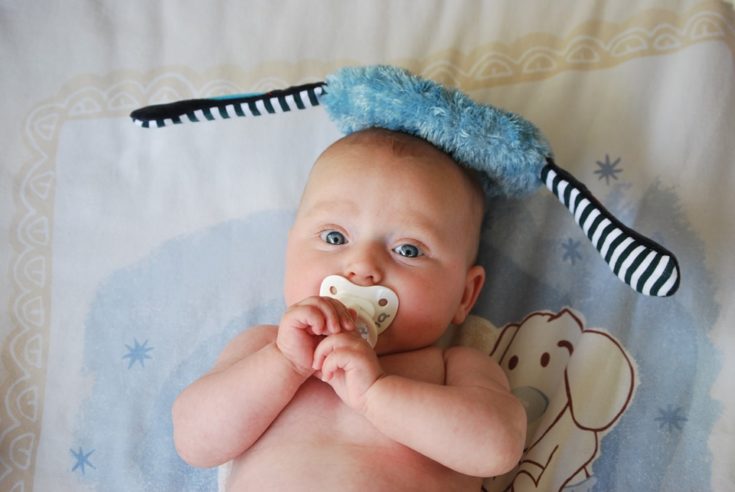Disclosure: This post may contain affiliate links, meaning we get a commission if you decide to make a purchase through our links, at no cost to you. Please read our disclosure for more info.
One of the main concerns for most parents is for their newborn begins to develop properly in the first stages of life. Although babies are limited with their activity and behaviors, there are a few signs that show your child is developing properly with each month that passes.  To see if your baby is on track with how they’re growing, here are a few important signs to look for.
To see if your baby is on track with how they’re growing, here are a few important signs to look for.
Smiling
Smiling is not a learned expression, but is a natural way of showing joy. This allows newborns to express themselves in the first three months of their life when you’re making a funny face or are singing them a nursery rhyme. It shows their brains have developed enough to express and emit emotion by copying behaviors of adults they see.
Griping Objects
From pacifiers to blankets, your newborn should be gripping objects early on, and will also begin reaching for different objects that are placed in front of them. Mothers will find that newborns are often prone to pulling your hair and getting a firm grip.
Raises Head
Many parents practice tummy time with their newborn baby, which teaches the infant how to lift their head as they spend time on their stomach. Your little one should begin to raise their head on their own in the first three months.
Roll Over
From four to six months, your baby will begin to practice rolling over onto their back or stomach as they begin to increase in their mobility while on the floor or in their crib.
Respond to Commands
Parents who are interested in their child’s development might consider taking classes from an applied behavior analysis program online. This will make it easy to understand that children begin to respond to “no” and “stop” from seven to nine months. At this stage of life, they should also begin to say other common word or half-words they hear often.
Pointing
Children who reach 10 to 12 months of age will begin to point at objects they’re interested in. From the television screen to toys in the store, your child will show their interest in various items by pointing to get your attention.
Although each child progresses and develops at their own pace, there are still a few signs to look for to ensure your newborn is on track. This will make it easier to help your infant grow and teach them simple steps that can help them develop both mentally and physically.
